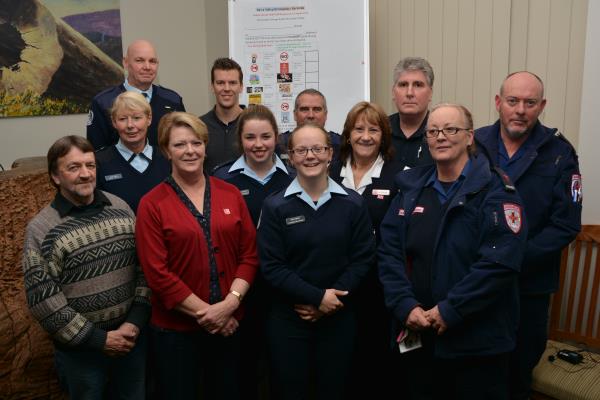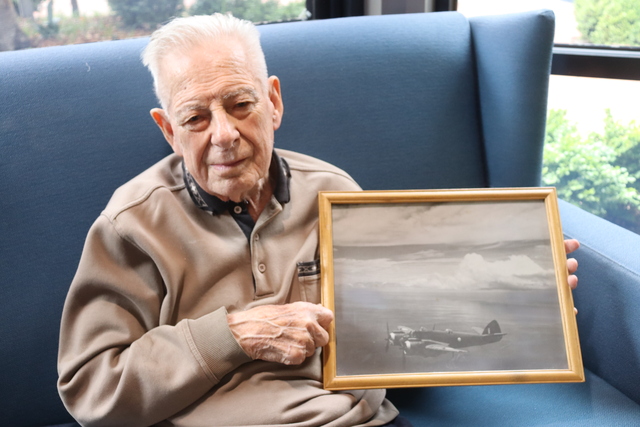By JESSE GRAHAM
Teens told of more than 100 people affected by every road death…
YOUNG drivers received a dire warning from emergency services workers last week – drive safely or face life-changing – or ending – consequences.
The Teenage Road Information Program (TRIP) evening was held on Wednesday 13 August at Heritage Funeral Homes in Woori Yallock to a packed room of teenagers and parents.
Emergency service crews organised the evening which was aimed at delivering a hard-hitting message to teenagers from the people who see road trauma first-hand.
The message behind the program is simple – that one death on the roads is too many and that poor driving decisions can have a ripple effect on many people’s lives.
Millgrove CFA volunteer and church pastor Andrew Bennett said many people did not realise the ripple effect of road trauma.
Using the example of 19-year-old Luke Robinson’s death in 2010, Mr Bennett used the seated audience to demonstrate how many people’s lives were impacted by road deaths.
Three people – passengers in the car – were immediately affected along with 10 people who were first on the scene, five triple zero operators, 10 neighbours to the scene of the crash, two tow truck drivers, eight people in the immediate family, eight doctors, nurses and orderlies, 15 friends and partners, three morticians, 15 extended family members and about 40 workmates and colleagues.
Mr Bennett got members of the audience to stand to show the numbers and by the time he included football and sport club mates who would be affected by a single road death, the whole audience was standing.
“If you don’t know someone in a car accident, you know someone who knows them,” he said.
“This is true for the eight people who died in the valley last year.”
Daniel van der Hoek spoke to the room about his own brush with road trauma – crashing into a truck at 100 kilometres per hour after drink driving.
Mr van der Hoek ended up in a coma for three days, and both he and Warburton police Sergeant Tom Wilkinson said that men aged 18-25 were over-represented in road toll statistics.
They both warned the teenagers at the event to take simple actions to be safer on the roads – to avoid using mobile phones, eating while driving, drink or drug driving, grooming themselves while behind the wheel or driving while fatigued or emotional.
“If you’re angry at your job or your parents, it’s not the time to get behind the wheel,” Sgt Wilkinson said.
“This behaviour causes risks to people, not just yourself.
“For an innocent behaviour, the penalties are harsh – people die and the judges are harsh.”
Young drivers and potential drivers were asked to sign a pledge on the evening, not to drive while distracted or impaired, to adopt good driving behaviour and to not let friends drive while distracted.
Speeches on the evening, which were given by parents of people killed or injured in car accidents, paramedics and emergency services crew, were illustrated with videos from Traffic Accident Commission (TAC) campaigns.
A video on the ripple effect of Luke Robinson’s crash was shown to audiences, before the famous TAC Everybody Hurts video, which compiles the organisations’ graphic advertisements and videos from the last 20 years.
Sgt Wilkinson said the road toll had improved in recent years, with eight people dying on Yarra Ranges roads last year, but that more work needed to be done.
That’s where parents and friends come in.
David Hadj, whose son was jailed for a drink-driving collision that killed two people, said friends and families have an obligation to stop loved ones from driving dangerously when they can.
“If you know someone under the influence of drugs or alcohol, you have a responsibility to the wider society to stop them from driving,” he said.
“You have to stand up and say ‘no’.”
For more information, visit www.facebook.com/pages/Yarra-Valley-TRIP/142969819125343.







